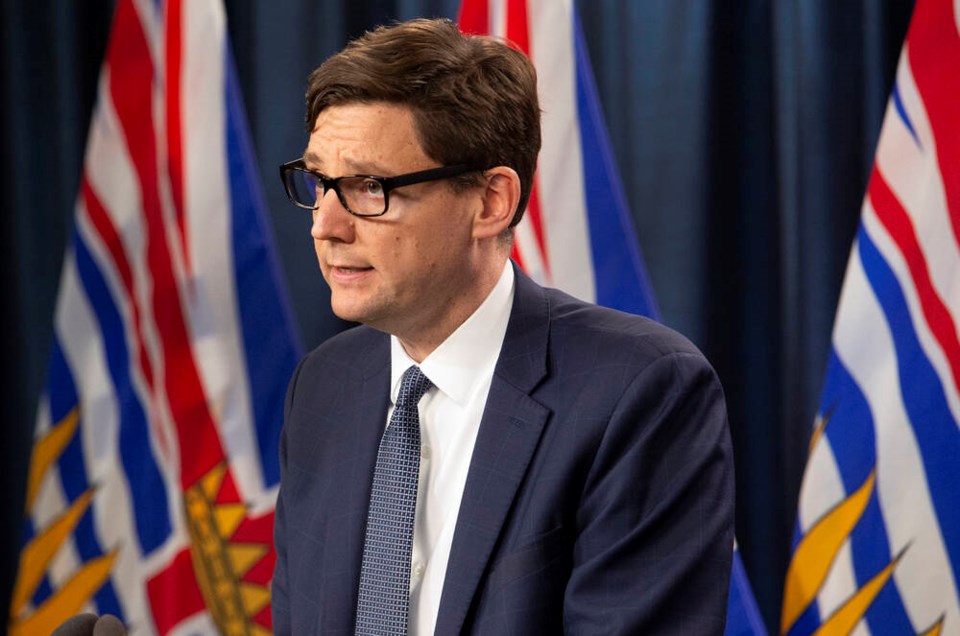Right at the intersection where serious street crime meets the mental health system, there’s a new piece of legislation being debated relatively quietly.
B.C.’s law and order ministers started looking this week for a solution to the problem of prolific offenders and random stranger attacks. It was just as debate opened in the legislature on changes to how people in mental health crises who are involuntarily admitted are treated.
An amendment to the Mental Health Act will provide new safeguards for the rights of involuntary patients.
It allows for the creation of an independent agency that will be responsible for advising involuntary patients of their rights and supporting them when exercising those rights.
The act already calls for regular medical examinations, second opinions and access to review panels and the courts.
Attorney General David Eby said the changes will strengthen protections. Advisers will connect with patients to explain, advise and make legal referrals if needed.
The rights advice service will be available to all involuntary patients as well as children under 16 admitted by parents or guardians as voluntary patients. Near relatives will also be notified in writing that a patient has the right to meet with an adviser.
Eby said the service will be phased in. At the outset, rights advice will be provided when asked. Later the agency will be notified of all involuntary admissions and contact them, although they can always decline help.
Six other provinces have such a service and the ombudsperson and representative for children and youth have recommended it in the past.
It’s arriving at a sensitive time. There’s heightened anxiety about random stranger attacks and prolific offenders and both problems are often blamed on people in mental health crises. Numerous municipalities across B.C. are grappling with them and they are cropping up frequently in legislature debates.
There’s no direct link between the recent heated arguments about those kinds of street crimes and the bill that strengthens the rights of mentally-ill people involuntarily admitted to care. But some of the same individuals are involved in both those circumstances — profoundly disturbed people who need help and aren’t getting it.
Debate on the bill started one day before Eby and Public Safety Minister Mike Farnworth announced the latest move on street crime. It was over-hyped beforehand as a “creative solution,” but it turned out to be just a four-month independent study of what might be done.
It had the distinct feel of a response that was thrown together on short notice to buy some time until someone comes up with an idea.
The new safeguards for involuntary admissions, by contrast, have been in the works for a while.
Mental Health and Addictions Minister Sheila Malcomson said they will contribute to a dignified and appropriate response to mental health crises and the government has been advised it should have been place long ago.
B.C. Liberal opposition members indicated support. So did B.C. Green MLA Sonia Furstenau, but with a sharp warning about something most people take as a given.
She disputed generalized linkages of street crime with mental health and addiction as “an example of exactly the kind of stigmatization of mental health and addictions that we have not yet overcome.”
Police, mayors around B.C. government ministers and many others have been saying the linkage is undeniable.
But Furstenau told the legislature that “when we hear a kind of generalization linking mental health and addiction to criminal behaviour, it reinforces that stigma and the challenge that people will have for seeking help… because to this day in rooms like this it can still be linked and connected to criminality.”
She said the whole Mental Health Act needs a rewrite, as did the police reform committee last week.
“The act has coercive control,” she said. “It gives near total authority to hospitals and facilities over people’s health choices and it perpetuates harmful stereotypes…”
She said involuntary mental health treatment increased by 79 per cent from 2005 to 2018 and an ombudsperson report found only half of such patients are offered legal advice, as required by law. That 2019 report also found low compliance with other requirements to do with their rights.
Furstenau said the amendments are an improvement, but “the watered-down language will allow facilities to continue to break the rules.”
• To comment on this article, write a letter to the editor: [email protected]




